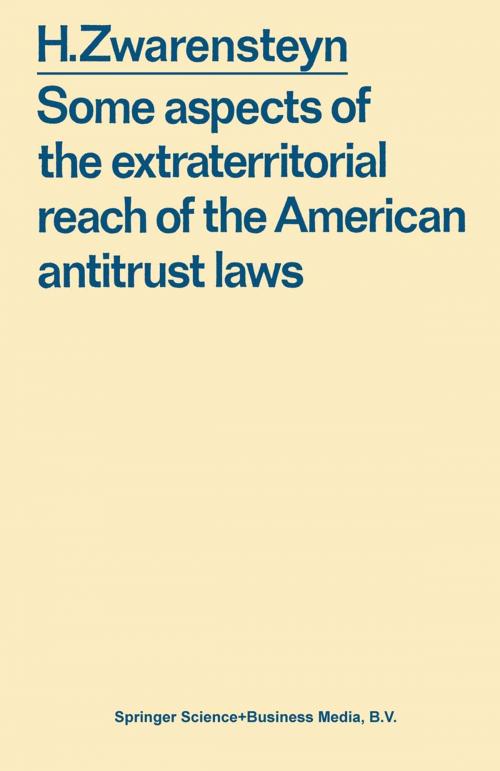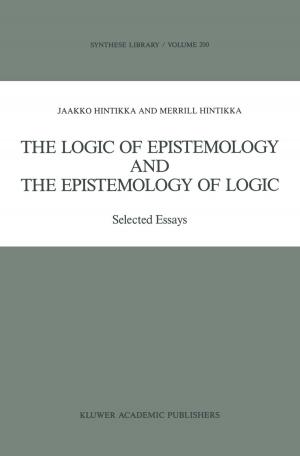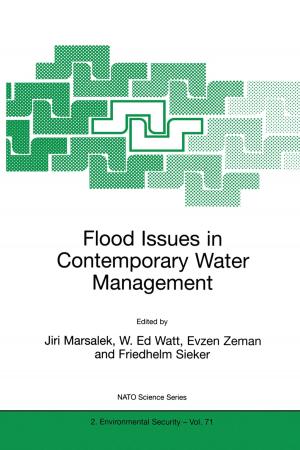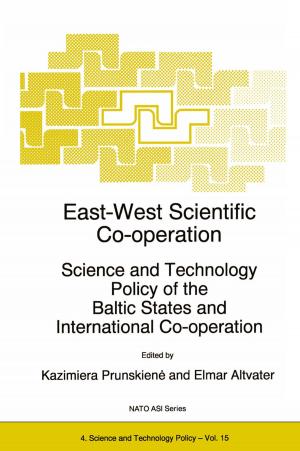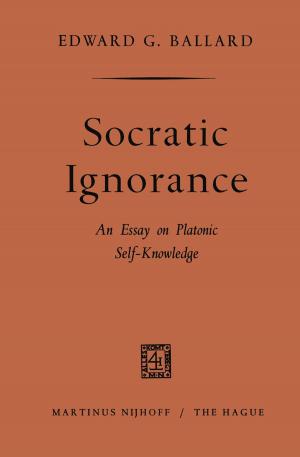Some aspects of the extraterritorial reach of the American antitrust laws
Nonfiction, Reference & Language, Law, Commercial| Author: | Hendrik. Zwarensteyn | ISBN: | 9789401744676 |
| Publisher: | Springer Netherlands | Publication: | June 29, 2013 |
| Imprint: | Springer | Language: | English |
| Author: | Hendrik. Zwarensteyn |
| ISBN: | 9789401744676 |
| Publisher: | Springer Netherlands |
| Publication: | June 29, 2013 |
| Imprint: | Springer |
| Language: | English |
General While there is an abundance of literature dealing with the American antitrust laws, one can also observe that the application of this area of the law to foreign commerce is still in an evolutionary stage of development. To some extent this can be quantiflably explained by pointing out that the rapid rise of the interests of the American business community in foreign commerce is only a fairly recent 1 phenomenon. This participatory interest reveals a wide spectrum of commercial activities. While the traditional concept of foreign commerce was often limited to thinking in terms of exports and imports, present commercial activities include also such marketing methods as the establishment of foreign branches or subsidiaries, or 2 the location of manufacturing, processing, or assembly plants abroad. To this array of arrangements, most of which contemplate a widening of the market potential, we may add the current merger movement, the conglomerate charac ter of which has been termed its 'most unique characteristic,. 3 Little wonder that at least one author refers to the application of the 311titrust laws to foreign commerce as being still somewhat of a 'frontier area of the law'. 4 Because of the rapidly expanding participation of the American business community in interna tional commerce a gradual evolution of the international dimensions of the American antitrust laws seems therefore within the realm of justifIed expecta tions.
General While there is an abundance of literature dealing with the American antitrust laws, one can also observe that the application of this area of the law to foreign commerce is still in an evolutionary stage of development. To some extent this can be quantiflably explained by pointing out that the rapid rise of the interests of the American business community in foreign commerce is only a fairly recent 1 phenomenon. This participatory interest reveals a wide spectrum of commercial activities. While the traditional concept of foreign commerce was often limited to thinking in terms of exports and imports, present commercial activities include also such marketing methods as the establishment of foreign branches or subsidiaries, or 2 the location of manufacturing, processing, or assembly plants abroad. To this array of arrangements, most of which contemplate a widening of the market potential, we may add the current merger movement, the conglomerate charac ter of which has been termed its 'most unique characteristic,. 3 Little wonder that at least one author refers to the application of the 311titrust laws to foreign commerce as being still somewhat of a 'frontier area of the law'. 4 Because of the rapidly expanding participation of the American business community in interna tional commerce a gradual evolution of the international dimensions of the American antitrust laws seems therefore within the realm of justifIed expecta tions.
